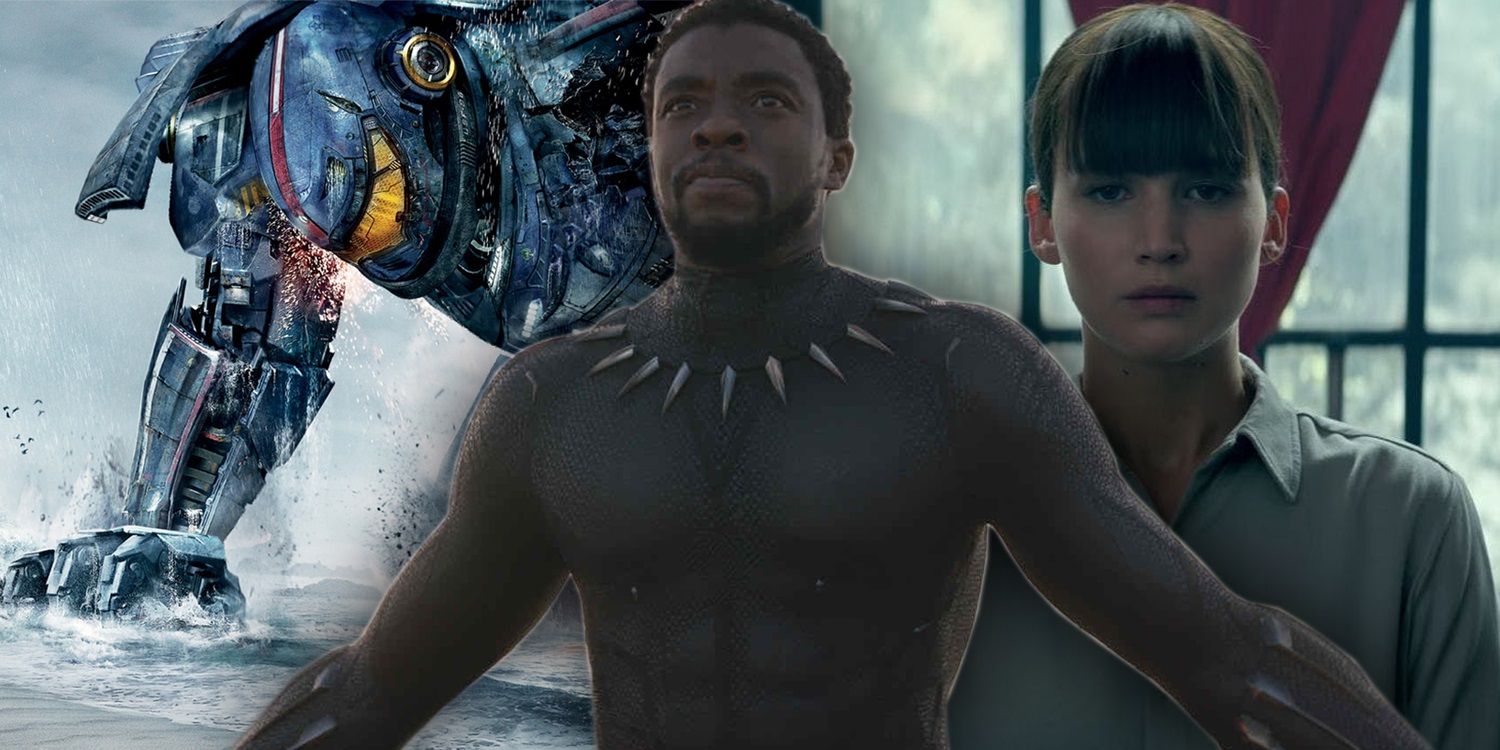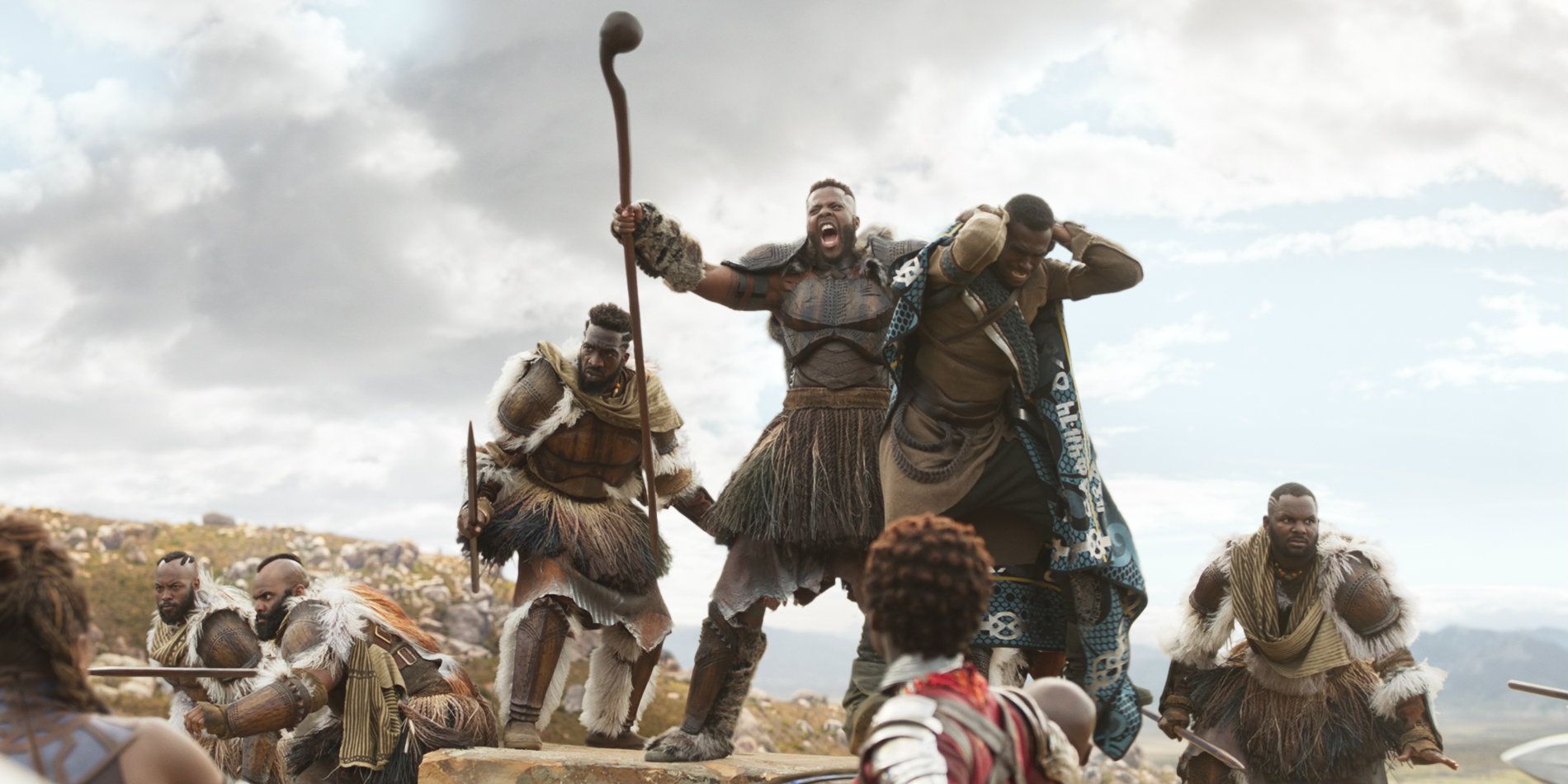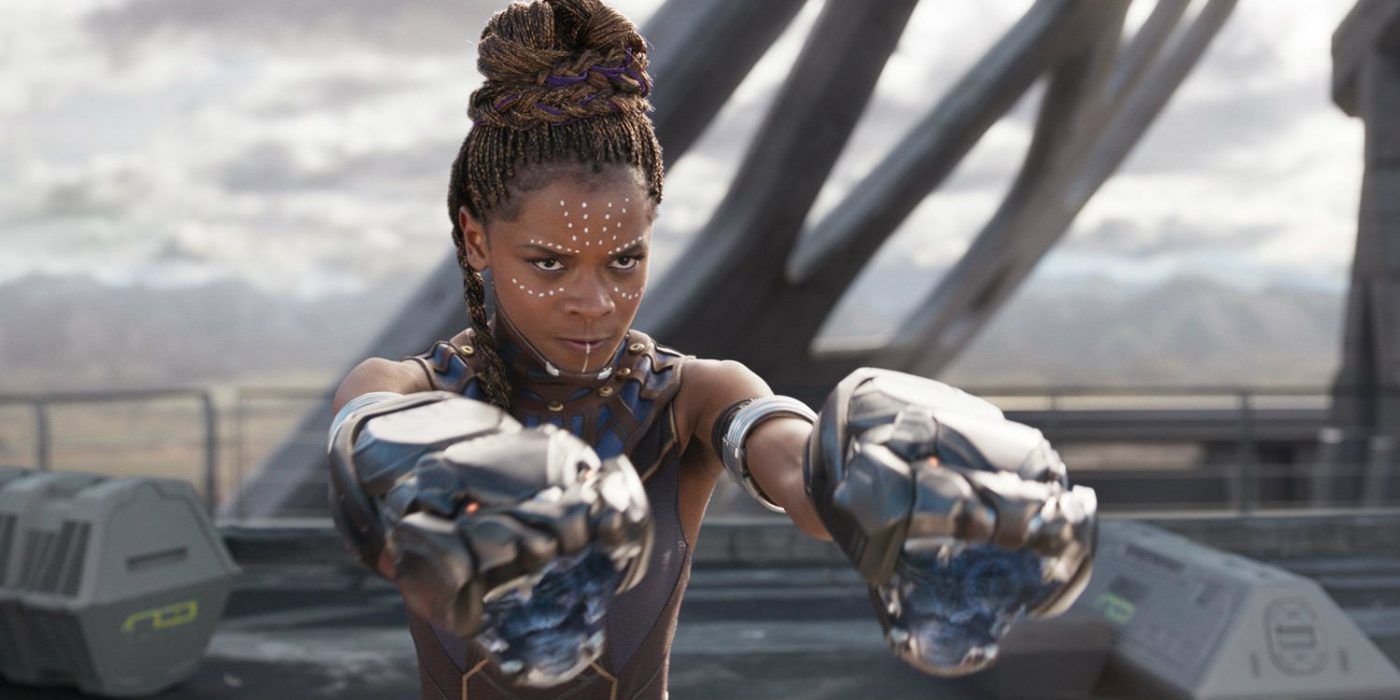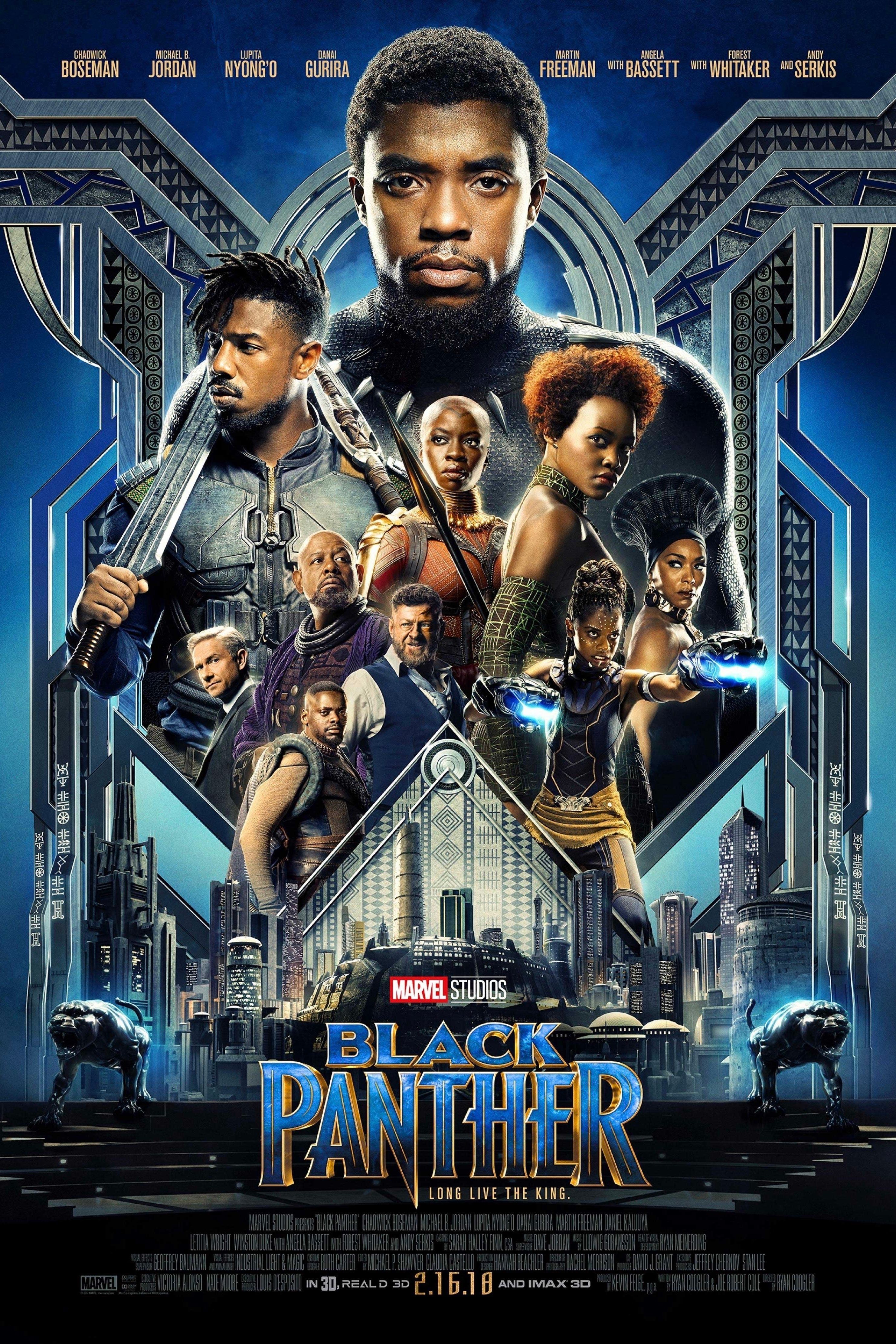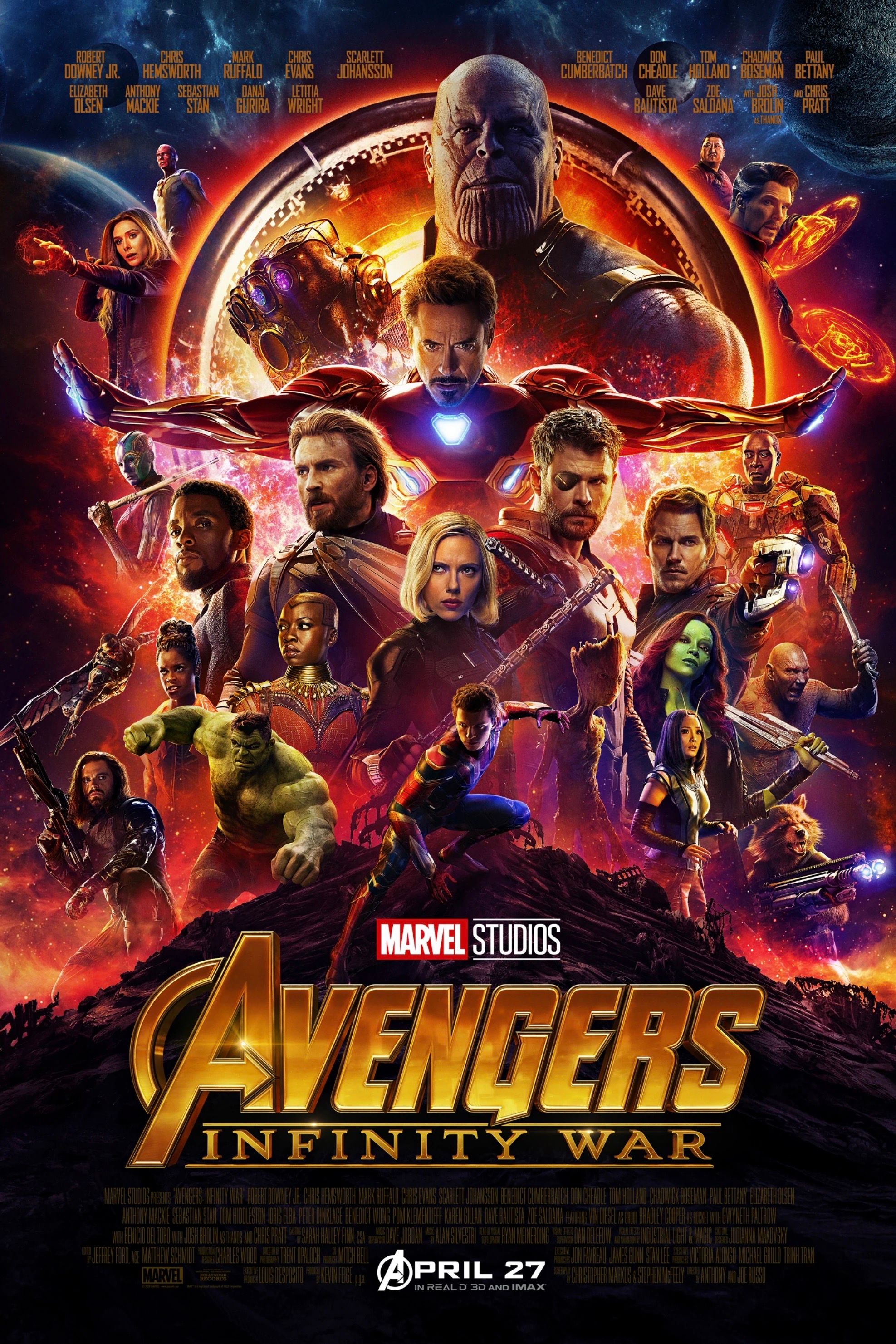Since its release in mid-February, Marvel's Black Panther has been unstoppable: breaking records, far outstripping early box office predictions, and now closing in on a $1.2 billion worldwide gross. Black Panther's success hasn't been without casualties, however, as movies with similar target demographics - including Red Sparrow, Tomb Raider, and A Wrinkle in Time - have struggled to break through in subsequent weeks. But while it's true that Black Panther's success may have steamrolled other smaller or non-franchise movies, that's not Black Panther's fault. The situation boils down to studios sending weak competition up against a movie that was massively underestimated.We can even put a number on just how much Black Panther was under-estimated by the industry: $112 million. That's the difference between the early opening weekend box office projections, which pegged the movie as debuting about on par with Doctor Strange at $90 million, and the $202 million that Black Panther ultimately grossed in its opening weekend. On the assumption that director Ryan Coogler's first (but probably not last) Marvel Cinematic Universe entry would just be another mid-tier superhero solo movie, other studios gave it just two weeks to wind down before sending in the usual February/March slate of low-ambition movies.Related: Summer Movie Season is Over And It's All Because of MarvelWhile some of those movies may have flopped regardless (as February/March releases are often wont to do), there's no denying that they would probably have performed better if Black Panther hadn't been released in mid-February. But Black Panther was released in mid-February, and Disney announced that release date way back in October 2015. There was plenty of time for other studios to see that boulder rolling down the hill and reshuffle their schedules to release smart counter-programming like Peter Rabbit, Strangers: Prey at Night and Game Night (all of which have enjoyed box office success). So, who is really to blame for those other releases getting eclipsed by Black Panther?This Page: The Competition Was Weak
The Competition Was Weak
February, while not as much of a barren dumping ground as January, has historically been one of the cooler winter months during which studios drop smaller or less-certain projects. It's after the holiday rush (and in the financial drought left behind after holiday spending), kids are in school, and there's a decent chance of horrible weather outside - all of which are factors that discourage people from heading out to the movie theater. It was for precisely these reasons that Deadpool, a movie that Fox wavered on green-lighting for a long time before eventually giving it the go-ahead with a modest budget, was scheduled for a February release in 2016. The studio was braced for Deadpool to be reasonably successful, at best.
Deadpool was not reasonably successful. It was unreasonably successful, to the tune of $783 million worldwide, and it remained #1 at the box office for three weekends. Deadpool also left casualties in its wake, but the movies that were crushed by Deadpool were mostly movies that had been dumped in February because they weren't that great. Zoolander 2 and Gods of Egypt weren't unfairly robbed of their rightful box office success by a tentpole bully; they were bad movies that were beaten by a better alternative.
Related: Every Record Black Panther Has Broken
If Deadpool shook February and March's reputation as dump months in 2017, then the lesson was truly driven home in 2017, which saw early year tentpole successes with Logan and Kong: Skull Island, and even genre movies like Get Out and Split outstripping all expectations. Clearly, people are willing to leave their homes and head out to the movies at this time of year: there just needs to be something exciting on offer. But what studios had to offer in the wake of Black Panther was a by-the-numbers reboot of a video game adaptation that wasn't even all that successful the first time it was made, a dull-looking thriller about female spy using her feminine wiles to seduce targets, and a seriously tone deaf '70s revenge movie remake.
Even Ava DuVernay's A Wrinkle in Time - a movie that many people were enthusiastically rooting for due to its director, its cast, and its source material - ultimately under-performed not because of Black Panther, but because critics and audiences agreed it simply wasn't very good. In a critique of Black Panther's overwhelming success, Forbes argues that it has come at the expense of "an entire pre-summer slate of would-be event movies" - counting Tomb Raider, A Wrinkle in Time, and upcoming releases Pacific Rim: Uprising and Ready Player One among the victims. But if those upcoming releases struggle as well, it won't be Black Panther's fault. Black Panther's only crime is being a movie that people want to watch.
Why Black Panther Was Such a Massive Hit
The most important answer to this question is also the simplest: Black Panther is a great movie. Despite popular misconceptions about audiences only liking loud, dumb movies (propped up by cherry-picked examples like the Transformers franchise), an in-depth study by Metacritic found a strong correlation between critical consensus and box office performance. Now, reviews aren't a completely objective measure of whether a movie is "good" or "bad," but they're generally a pretty good measuring stick, and these findings make sense; ultimately, people just want to watch good movies. They want to be entertained, and Black Panther delivered that entertainment.
Another major driving factor behind Black Panther's success is also likely one of the reasons it was so dramatically under-estimated: it has a majority black cast. Despite substantial research showing that diverse casting is a boon to box office performance, Hollywood still seems to be gripped by a fear that movies with non-white leads are a harder sell. But African-American audiences are far from a niche demographic; comScore polling found that 37% of attendees during Black Panther's opening weekend were African-American (on average, African-Americans usually make up around 15% of the audience for superhero movies). African-American audience members alone accounted for $74 million in opening weekend ticket sales. To put that in perspective, Ant-Man's total opening weekend gross was $57 million.
Related: Black Panther is Most Tweeted About Movie EVER
Much of that success is owed to Black Panther's aforementioned awesomeness, but like many other box office success stories, it's also attributable to the movie offering something that hadn't already been done. There have been black-led superhero movies before, but never with a budget this big, and never made by a black filmmaker, and never with a majority-black cast, and certainly never set in Africa.
African-American audiences were also a driving force behind Black Panther's omnipresence on social media, with even seemingly innocuous lines like "the prince will now have the strength of the Black Panther stripped away" becoming the source of popular memes, and supporting characters like M'Baku becoming fan-favorites. Everyone was talking about it, which made people who hadn't seen the movie yet want to join in the conversation, which in turn drove Black Panther's strong performance in subsequent weeks. It also benefited from a tie-in concept album curated by Kendrick Lamar, which debuted at #1 on the Billboard 200 chart. As we learned with Suicide Squad and Guardians of the Galaxy, a great soundtrack can be a major boost to a movie's box office success.
Ultimately, however, a considerable portion of Black Panther's success is attributable to the fact that it was the best thing on offer, and it's not the movie's fault that other studios (even Disney) delivered weak competition. Almost all of the movies that Black Panther has stomped at the box office have received "Rotten" ratings on Rotten Tomatoes, with the notable exception of Alex Garland's cerebral sci-fi movie Annihilation, which was mainly the victim of a botched release by Paramount Pictures. The fact that it went up against Black Panther in its second weekend and came away with an $11 million opening is, frankly, a considerable achievement.
Beyond Annihilation, though, can we really blame audiences for preferring to see Danai Gurira take out a bad guy with a wig, rather than watching Jennifer Lawrence alternate between being sexually assaulted and shamelessly objectified? Can we really pin Death Wish's failure on Black Panther when Bruce Willis' other recent projects have almost all been direct-to-video? Was the Tomb Raider reboot really an event movie in the making, or just another doomed video game adaptation? Forbes points to Pacific Rim: Uprising hoping for a $25 million opening weekend take, when the first movie was considered to have under-performed with a $38 million debut. But Pacific Rim: Uprising is a five-years-later sequel to a movie that barely broke even, which doesn't have that movie's prestige director and has lost most of the original cast. Black Panther is far from the biggest factor at play here.
By the same token, there's nothing standing in the way of another movie coming along and finally knocking Black Panther off the top of the pile (it has been in theaters for over a month, after all). Maybe Pacific Rim: Uprising will become a surprise hit. Maybe Ready Player One will deliver that good old Steven Spielberg magic. Whoever ends up taking the next big victory, it's a safe bet that, just like Black Panther's, it will be well-earned.
More: Black Panther Cracks Top 20 Highest-Grossing Movies Of All-Time

